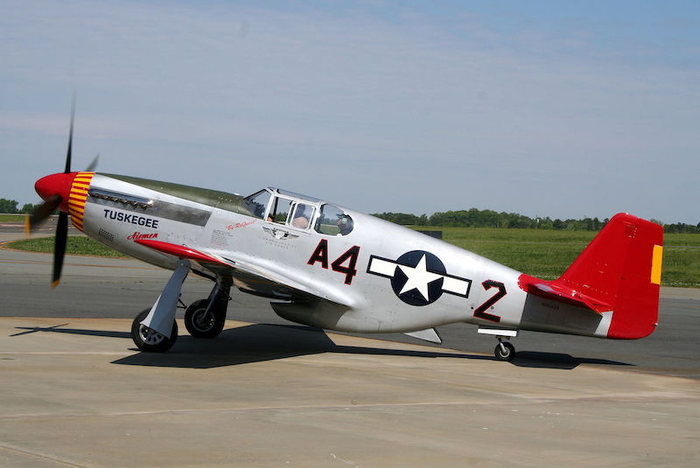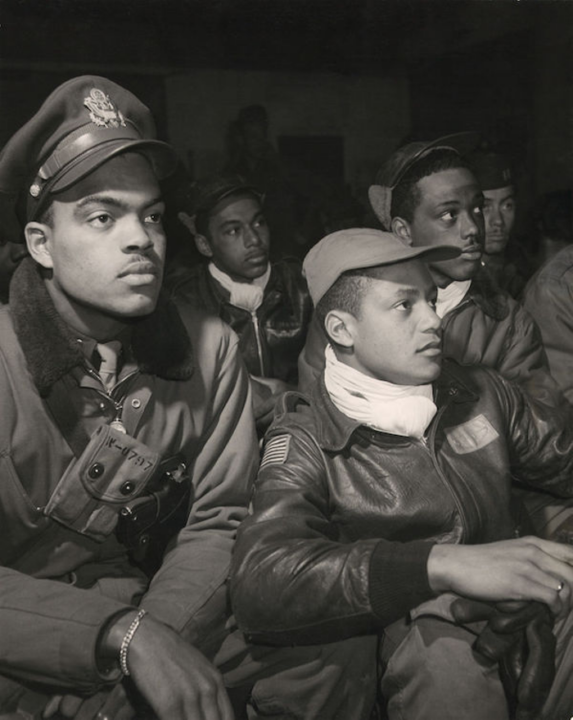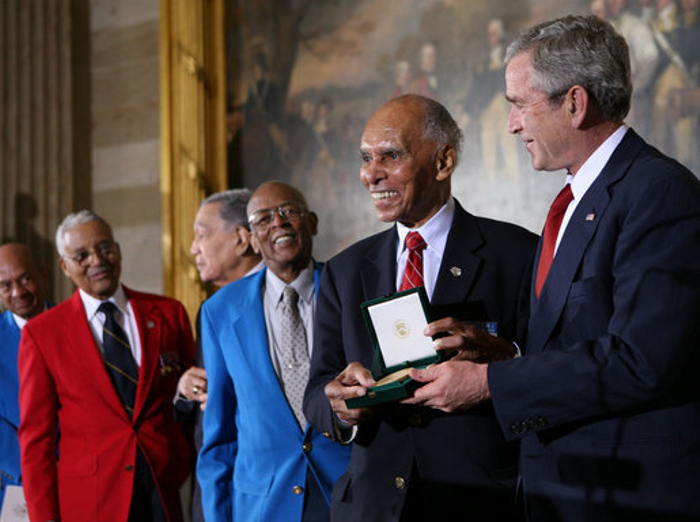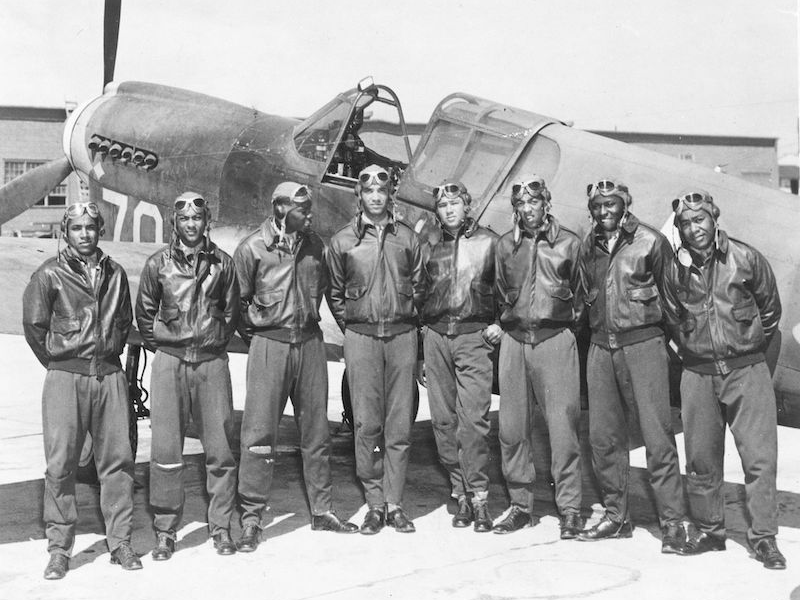Eight Tuskegee Airmen in front of a P-40 fighter aircraft, Wikimedia Commons
The Tuskegee Airmen were a group of African American military pilots who significantly contributed to the United States during World War II. The Airmen were members of the United States Army Air Corps and later the United States Air Force. Their service and dedication to the military during a time when racism was rampant is a testament to their courage and patriotism.
The Tuskegee Airmen were part of an experimental program designed to train African American pilots. The program was established in 1941, and the Airmen began training at the Tuskegee Army Airfield in Alabama. The program was initiated in response to a directive from President Franklin D. Roosevelt, who was under pressure from civil rights organizations and African American leaders in providing equal opportunities in the military.

P-51 Mustang aircraft flown by the Tuskegee pilots. Source: Wikimedia Commons
The Tuskegee Airmen were initially trained to be part of a support unit. Still, eventually, the Army Air Corps recognized the potential of the pilots and allowed them to participate in combat missions. The Airmen were primarily involved in bomber escort missions and flew over 15,000 sorties during World War II. Their record was impeccable, as they never lost a single bomber under their escort.
The Tuskegee Airmen’s contribution to the war effort was not limited to their military service. They also challenged the prevailing racial attitudes of the time. By excelling in their training and combat, they proved that African Americans were just as capable as any other race of serving their country with distinction. The Airmen’s efforts paved the way for future generations of African Americans to serve in the military without prejudice.

Men of the 332nd Fighter Group attend a briefing in Italy, 1945 Source: Wikimedia Commons
Despite the Airmen’s record of success, they faced discrimination and racism in and out of the military. The Airmen were not allowed to use the same facilities as their white counterparts and often had to fight for their rights within the military. Despite these challenges, the Airmen continued to serve with dedication and professionalism.
After the war, the Tuskegee Airmen continued challenging discrimination and fighting for civil rights. Many Airmen pursued successful careers in business, education, and politics. Their legacy inspires future generations of African American leaders and military personnel.

The Congressional Gold Medal presented to the Tuskegee Airmen by President George W. Bush in 2007. Source: Wikimedia Commons
In recognition of their service, the Tuskegee Airmen were awarded the Congressional Gold Medal in 2007, and a monument was erected in their honor in Washington D.C. The Airmen’s contribution to the military during World War II will always be remembered as a testament to their courage, dedication, and unwavering commitment to their country, even in the face of adversity.
In conclusion, the Tuskegee Airmen’s contribution to the military during World War II was significant and far-reaching. They served their country with distinction and challenged the discriminatory attitudes of the time. Their legacy continues to inspire future generations of Americans and is a testament to the courage and patriotism of all who have served in the military.

Anand Subramanian is a freelance photographer and content writer based out of Tamil Nadu, India. Having a background in Engineering always made him curious about life on the other side of the spectrum. He leapt forward towards the Photography life and never looked back. Specializing in Documentary and Portrait photography gave him an up-close and personal view into the complexities of human beings and those experiences helped him branch out from visual to words. Today he is mentoring passionate photographers and writing about the different dimensions of the art world.





